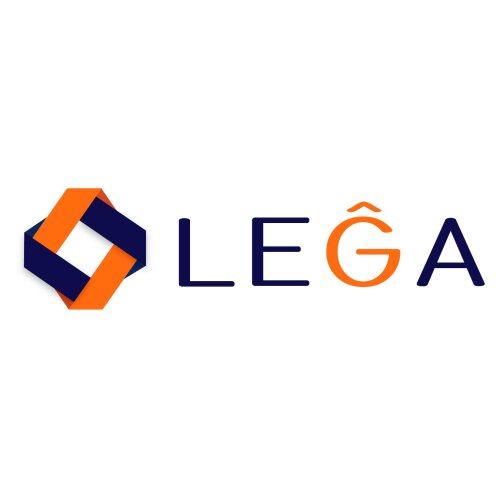Best Art & Cultural Property Law Lawyers in Caracas
Share your needs with us, get contacted by law firms.
Free. Takes 2 min.
List of the best lawyers in Caracas, Venezuela
About Art & Cultural Property Law in Caracas, Venezuela
Art & Cultural Property Law in Caracas, Venezuela, deals with the legal framework governing the creation, ownership, protection, and transfer of art and cultural assets. Given Caracas’s rich cultural heritage and the significance of Venezuelan artistic contributions, this field of law plays a vital role in preserving cultural integrity and ensuring that artworks and cultural properties are protected against illicit trades, misappropriation, and damage. These laws cover a wide array of issues, from intellectual property rights and copyrights for artists to the return of stolen or illicitly exported artifacts.
Why You May Need a Lawyer
There are numerous situations where individuals or businesses might require legal assistance in the realm of Art & Cultural Property Law. These can include disputes over the authenticity of artworks, inheritance issues involving valuable collections, copyright infringement cases, or legal ownership claims over cultural artifacts. Additionally, if you are dealing with the exportation or importation of cultural goods-especially those with historic significance-you may need legal guidance to ensure compliance with international conventions and local legislations such as UNESCO treaties or Venezuelan heritage laws.
Local Laws Overview
Venezuela has a legal framework tailored to the protection and management of cultural assets. Key legislations include the Organic Law of Cultural Heritage, which outlines the protection of objects deemed to have cultural value, and the national regulations aligned with UNESCO conventions designed to prevent illicit trade. These laws provide the government authority over heritage assets, establish the criteria for art exportation and importation, and stipulate the processes for restitution of cultural properties. Familiarity with national regulations is crucial, particularly for investors, collectors, and professionals dealing in the artefacts market in Caracas.
Frequently Asked Questions
1. What is considered cultural property under Venezuelan law?
Cultural property includes objects of cultural, historical, artistic, scientific, or traditional value, both tangible and intangible. This encompasses artworks, artifacts, ethnic heritage items, and more.
2. What are the penalties for illicit trafficking of cultural property?
Penalties may include fines, imprisonment, and the confiscation of the items in question. Additionally, perpetrators might be subject to extradition based on international agreements.
3. How can I authenticate an artwork?
Authentication usually involves expert appraisal, provenance research, and sometimes scientific methods like carbon dating or material analysis. Legal advice may be necessary when disputes arise.
4. Do I need a permit to export cultural heritage items from Venezuela?
Yes, exporting cultural property typically requires a permit, and items of significant heritage value may be prohibited from leaving the country entirely.
5. Can I inherit and transfer ownership of cultural properties?
Yes, but the process may involve complying with laws governing inheritance and cultural property to ensure rightful succession and legality of ownership transfer.
6. How can artists protect their intellectual property?
Artists should register their works for copyright protection and may benefit from legal counsel to enforce rights against unauthorized use or reproduction.
7. Who oversees cultural property laws in Venezuela?
The Ministry of Culture and the Museums Foundation are primarily responsible for the enforcement of cultural property laws and sanctions.
8. What should I do if I suspect a cultural property is stolen?
Immediately report it to the authorities, such as the National Guard or other local law enforcement, and consider legal advice for proper procedures.
9. What are the consequences for breaching cultural property laws?
Consequences can range from fines and legal restitution of items to criminal charges, depending on the severity and nature of the breach.
10. Is international collaboration required in cultural property cases?
Yes, Venezuela may collaborate internationally, particularly on cases involving trans-border trafficking and heritage restitution, aligning with global conventions.
Additional Resources
If you need more information or assistance, consider reaching out to the following resources:
- The Ministry of Culture in Venezuela
- UNESCO Office in Caracas
- Local law firms specializing in art law and cultural property
- Museums Foundation in Caracas
Next Steps
If you require legal assistance in Art & Cultural Property Law, it is advisable to consult with an attorney specializing in this field. Start by:
- Researching and reaching out to law firms with expertise in art and cultural property.
- Gathering necessary documentation related to your case or property.
- Booking a consultation to discuss your specific situation and explore your legal options.
- Staying informed about both local and international regulations affecting cultural property to ensure compliance.
Lawzana helps you find the best lawyers and law firms in Caracas through a curated and pre-screened list of qualified legal professionals. Our platform offers rankings and detailed profiles of attorneys and law firms, allowing you to compare based on practice areas, including Art & Cultural Property Law, experience, and client feedback.
Each profile includes a description of the firm's areas of practice, client reviews, team members and partners, year of establishment, spoken languages, office locations, contact information, social media presence, and any published articles or resources. Most firms on our platform speak English and are experienced in both local and international legal matters.
Get a quote from top-rated law firms in Caracas, Venezuela — quickly, securely, and without unnecessary hassle.
Disclaimer:
The information provided on this page is for general informational purposes only and does not constitute legal advice. While we strive to ensure the accuracy and relevance of the content, legal information may change over time, and interpretations of the law can vary. You should always consult with a qualified legal professional for advice specific to your situation.
We disclaim all liability for actions taken or not taken based on the content of this page. If you believe any information is incorrect or outdated, please contact us, and we will review and update it where appropriate.










